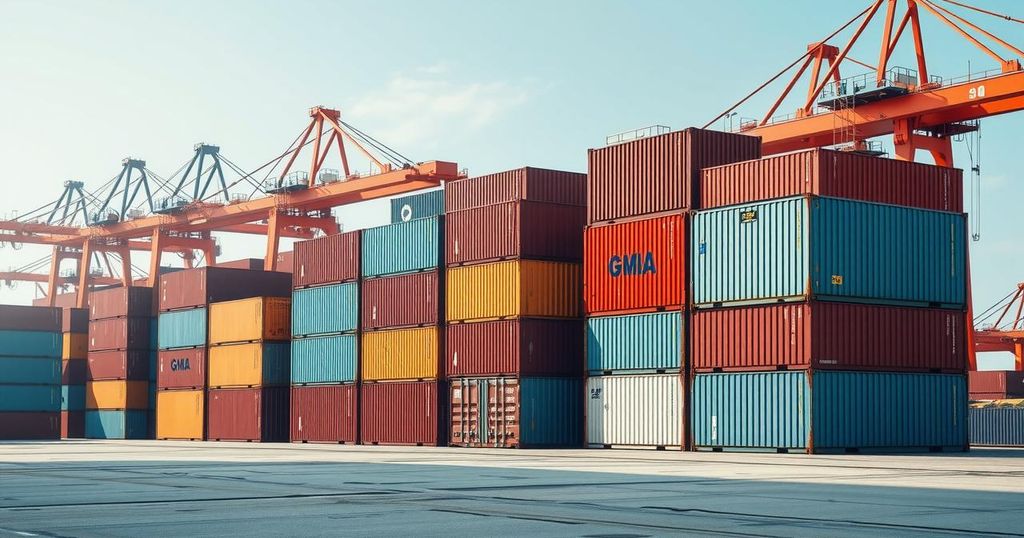President Trump has imposed tariffs on goods from Canada, Mexico, and China to protect U.S. interests concerning illegal immigration and drug trafficking. These tariffs, potentially impacting consumer prices significantly, may lead to retaliatory actions from affected countries. A rise in tariffs on the EU and UK could also occur if trade agreements are not negotiated, potentially exacerbating inflation in the U.S.
Recently, President Donald Trump announced the implementation of tariffs on imported goods from Mexico, Canada, and China. These tariffs, aimed at addressing issues surrounding illegal immigration and drug trafficking, include a 25% tariff on goods from Canada and Mexico and 10% on Chinese imports. Trump has indicated potential tariffs on EU goods while conversing with UK Prime Minister Keir Starmer to avoid similar actions against the UK.
Tariffs are essentially taxes imposed on imported goods, varying in types, with percentages being the most common form. The 25% tariff imposed by Trump on products from Mexico and Canada will add significant costs on consumer goods, with these costs potentially being transferred to consumers as higher prices.
The rationale behind these tariffs includes Trump’s intention to bolster American manufacturing, protect domestic jobs, and enhance tax revenue. He has linked these tariffs to drug trafficking concerns, emphasizing a desire to combat the inflow of fentanyl and other illicit substances from these countries. In response, leaders of Canada and Mexico have hinted at imposing countermeasures, including retaliatory tariffs.
Products likely to be affected include a broad range of imports, particularly from Mexico and Canada, such as agricultural goods and automotive parts. Increased costs associated with these tariffs may significantly elevate consumer prices, with economic analysts predicting average car prices in the U.S. to rise by up to $3,000 as a result.
Looking ahead, Trump stated that tariffs on the EU and the UK could be imminent unless a trade agreement is reached. The UK’s Business Secretary, Jonathan Reynolds, argued against the imposition of tariffs on the UK, noting a trade imbalance favoring U.S. exports. Previous tariff disputes with the EU have already impacted major U.S. companies involved in sectors such as motorcycles and whiskey production. Additional tariffs may also lead to inflation, with estimates suggesting a potential spike from 2.9% to 4% if the tariffs remain in effect.
Economists are concerned that such tariffs may trigger retaliatory consequences, leading to a broader trade conflict that could ultimately strain both domestic and global economies. Short-term studies demonstrate that consumers may experience higher prices due to these tariffs, as the burden often shifts from importers to consumers.
Tariffs are a significant tool in international trade policy, imposed by governments to protect domestic industries from foreign competition and to generate revenue. Tariff increases can influence not only economic relationships between the countries involved but can also directly impact consumer prices domestically. In recent years, economic studies have shown that implemented tariffs in various sectors often lead to increased costs for consumers, affecting inflation rates and trade balances.
In summary, Trump’s recent tariffs targeting Canada, Mexico, and China serve multiple purposes, including economic protection and drug trafficking concerns. While these measures aim to enhance U.S. manufacturing and tackle domestic issues, they may lead consumers to experience higher prices due to increased import costs. Global trade dynamics, particularly with the EU and the UK, could also change significantly if negotiations do not yield favorable outcomes, potentially creating ripple effects in inflation rates and economic stability.
Original Source: www.bbc.com




